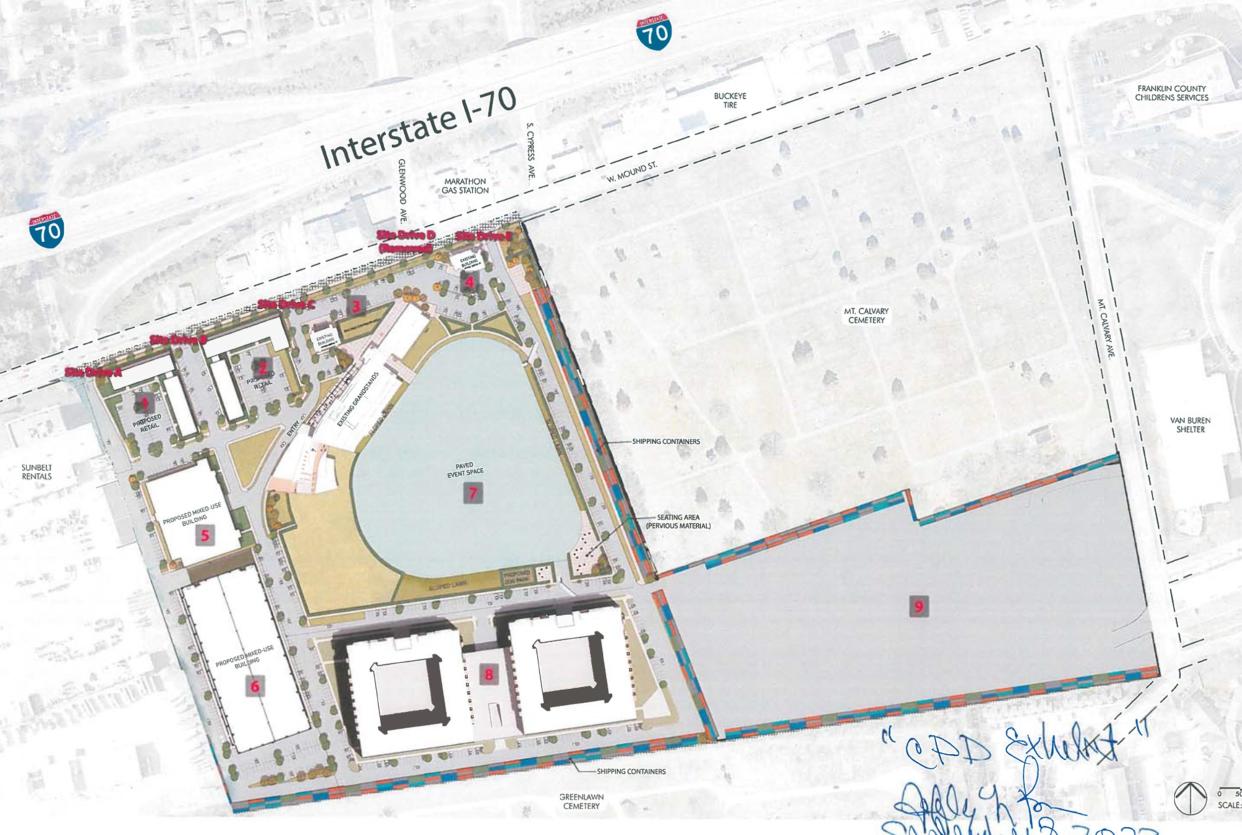Columbus City Council resolution lays path for zoning changes to bring more urban density

Columbus City Council reminded residents again that zoning changes are coming early next year that will usher in more dense urban developments, with code changes such as allowing taller buildings, fewer required parking spaces, and reducing the need for site-by-site community negotiations for "variances" from the city building code.
The council passed a resolution Monday which, while it doesn't actually yet change anything in the zoning code, states new goals that the changes are meant to address.
"This is the first time we've announced these goals that will help to guide this process moving forward," said Councilmember Rob Dorans, chair of the council's zoning committee. "I am confident that Council will have legislation before us in spring of 2024 addressing our zoning code in the identified corridors areas."
The goals stated in the nonbinding resolution, which passed 7-0, are: to "modernize" the zoning code to reflect current and future needs, values and aspirations; support growth that prioritizes environmental and economic sustainability through improved transit, additional housing opportunities and job centers; encourage investment in neighborhoods that have experienced racial and economic segregation; guide the design and development of main streets, neighborhoods and activity centers; and ensure the zoning code is fair, predictable and accessible.
"Tonight's resolution means that Council has agreed with the priorities created by the (Mayor Andrew J. Ginther) administration after a months-long community engagement process via the 'Zone In' initiative," Dorans said.
Council President Shannon Hardin told The Dispatch at a community hearing on the proposed changes that some version of the new zoning code would be approved by the council early next year. The Dispatch reported in January 2022 that a consultant's report recommended a bold plan: "repeal and replace Title 33- Zoning Code, in its entirety." The zoning code regulates how a property is zoned, what can be built on it, parking, how densely packed residential units can be, and other factors.
The first phase of the plan proposes that the zoning changes occur primarily in the city's more-dense "transportation corridors," or main streets served by the Central Ohio Transit Authority (COTA), to help allow for projected population growth while minimizing the impact on street traffic.
But during the community meeting last month, some Clintonville residents were wary, saying the changes are really to pave the way for politically connected developers to build higher and cheaper developments. "This train did not leave the station until somebody bought a ticket," Sandy Simbro, 76, said at the time, referencing the campaign contributions that developers have given to city officials.
In other action, the city council approved paying $8.33 million to AECOM for architectural, engineering and construction management services for the city's planned new "Real Time Crime Center" at 750 Piedmont Road.
The city plans to repurpose a former campus that housed city Building and Zoning employees adjacent to Interstate 71 in Linden, a few blocks north of North Broadway Avenue, into the city's new 911 center and other Public Safety office space — including a new police substation.
Columbus City Council on Monday also:
Gave final approval to a rezoning and variances to the site of the former Cooper Stadium baseball field in Franklinton to clear the way for a new mixed-use development on a 47.2-acre site that Franklin County sold in 2012 to the SPARC Holding LLC development firm for an auto research center and race track that was never built. The latest proposal calls for two apartment buildings, retail, office space and commercial buildings with the possibility of an outdoor amphitheater with a special permit.
Authorized the city attorney to spend up to $5 million to complete the purchase of 58.4 acres of former rail corridor on the city’s Northeast Side to become a 7-mile-long "linear park." The Linden Green Line Project was partly funded by a 2023 Clean Ohio Green Space Conservation Program grant from the Ohio Public Works Commission for nearly $2.5 million, and the city matched that.
Formally approved an agreement with the Fraternal Order of Police, the union representing city police officers, to pay doubletime on a special program to patrol parks and special events like football games through the end of the year. The summertime program, in its second year, was to end last month. The extension is expected to cost $600,000.
wbush@gannett.com
@ReporterBush
This article originally appeared on The Columbus Dispatch: Columbus council resolution lays out goals of planned zoning changes

